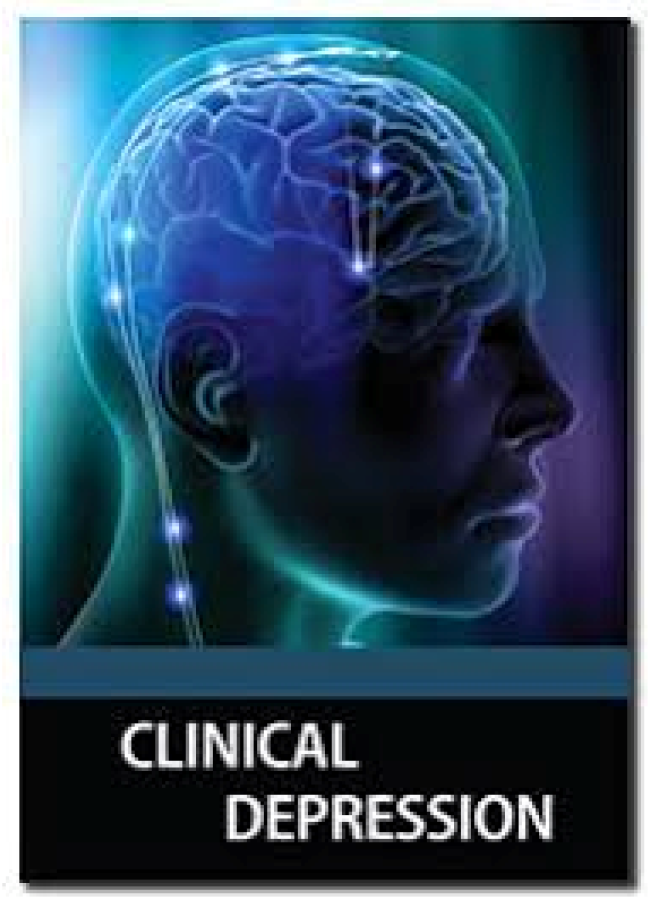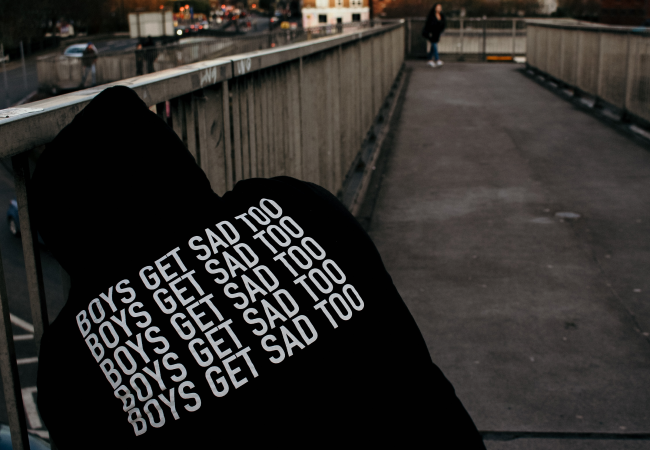
In the past we talked about the overall definition of “Mood Disorders” and what wide range of different diagnoses can look like.
We will start talking about “Clinical Depression diagnosis” going forward that falls in that category under the “Mood Disorders” We wanted to better educate on the most common diagnosis to give you better insight on each.
Going forward we will be discussing:
• Anxiety Disorders
• Personality Disorders
• Psychotic Disorders
• Eating Disorders
• Trauma-Related Disorders
• Substance Abuse Disorders
• Phobia Disorders
• ADHD/ADD
• Bi-Polar Disorder
• OCD-Obsessive Compulsive Disorder
• DMDD- Disruptive Mood Dysregulation Disorder
Clinical depression is not a sign of personal weakness or a condition that can be willed away. Clinically depressed people cannot “pull themselves together” and get better. In fact, clinical depression often interferes with a person’s ability or wish to get help. Clinical depression is a serious illness that lasts for weeks, months, and sometimes years. It may even influence someone to contemplate or attempt suicide, then feel better. It can affect your body, mood, thoughts, and behavior. It can change your eating habits, how you feel and think, your ability to work and study, and how you interact with people. People who suffer from clinical depression often report that they “don’t feel like themselves anymore.”
Clinical Depression is also known as “Major Depression or Major Depression Disorder” So what does that mean?

Clinical depression is a serious medical illness that negatively affects how you feel, the way you think and how you act. Individuals with clinical depression are unable to function as they used to. Often, they have lost interest in activities that were once enjoyable to them and feel sad and hopeless for extended periods of time. Clinical depression is different from feeling sad or depressed for a few days and then feeling better. It can affect your body, mood, thoughts, and behavior. It can change your eating habits, how you feel and think, your ability to work and study, and how you interact with people. People who suffer from clinical depression often report that they “don’t feel like themselves anymore.”
Clinical depression is not a sign of personal weakness, or a condition that can be willed away. Clinically depressed people cannot “pull themselves together” and get better. In fact, clinical depression often interferes with a person’s ability or wish to get help. Clinical depression is a serious illness that lasts for weeks, months and sometimes years. It may even influence someone to contemplate or attempt suicide.
People of all ages, genders, ethnicities, cultures, and religions can suffer from clinical depression. Each year it affects over 17 million American men and women. While clinical depression is common, it is frequently unrecognized and untreated.
There are different types and levels of clinical depression. Mental health counselors and psychiatrists are trained to diagnose and treat clinical depression. With the right treatment, most people who seek help get better within several months. Many people begin to feel better in just a few weeks.
Did you know?
There are many different types of depression. Events in your life cause some, and chemical changes in your brain cause others.
Here is a list to just name a few:
1. Major Depression
2. Persistent Depressive Disorder
4. Seasonal Affective Disorder (SAD)
5. Psychotic Depression
6. Peripartum Depression
7. Situational Depression
8. Atypical Depression
Depression ranges in seriousness from mild, temporary episodes of sadness to severe, persistent depression. It isn’t the same as depression caused by a loss, such as the death of a loved one, or a medical condition, such as a thyroid disorder.
Feeling sad and depressed is often a normal reaction to a stressful life situation. For example, it is normal to feel down after a major disappointment or to have trouble sleeping or eating after a difficult relationship break-up.
Usually, within a few days, perhaps after talking to a friend, we start to feel like ourselves again. Clinical depression is quite different. It involves a noticeable change in functioning that persists for two weeks or longer. Imagine that for the last three months, you have slept more than 10 hours a day and still feel tired, you have stomach problems, you are unable to cope with life, and you wonder if dying would solve all your problems.
Or imagine not being able to sleep more than four hours a night, not wanting to spend time with family or friends, and constantly feeling irritable. And when friends try to reach out to you, you get even more upset and bothered. You lose perspective, and you do not realize that what you are experiencing is abnormal. You want to just “wait it out,” and you do not get help because you think it is weak to ask for help or you do not want to burden your friends. These are some of the experiences that people can have when they suffer from clinical depression. Unlike normal stress and sadness, the symptoms of clinical depression persist and do not go away no matter how much the individual wants.
Feeling sad and depressed is often a normal reaction to a stressful life situation. For example, it is normal to feel down after a major disappointment, or to have trouble sleeping or eating after a difficult relationship break-up. Usually, within a few days, after talking to a friend, we start to feel like ourselves again.
Feeling sad and depressed is often a normal reaction to a stressful life situation. For example, it is normal to feel down after a major disappointment or to have trouble sleeping or eating after a difficult relationship break-up. Usually, within a few days, perhaps after talking to a friend, we start to feel like ourselves again
Or imagine not being able to sleep more than four hours a night, not wanting to spend time with family or friends, and constantly feeling irritable. And when friends try to reach out to you, you get even more upset and bothered. You lose perspective, and you do not realize that what you are experiencing is abnormal. You want to just “wait it out,” and you do not get help because you think it is weak to ask for help or you do not want to burden your friends.
These are some of the experiences that people can have when they suffer from clinical depression. Unlike normal stress and sadness, the symptoms of clinical depression persist and do not go away no matter how much the individual wants.
What causes Depression?
You may feel you know exactly why you are depressed. Other times, however, the reasons for depression are not as clear. The causes of depression are quite complex. Very often it is a combination of genetic, psychological, and environmental factors. Regardless of the cause, depression is almost always treatable. You do not need to determine the cause of your depression to get help.
Biological factors: You may have heard about chemical imbalances in the brain that occur in depression, suggesting that depression is a medical illness.
Depression does seem to have a biological component. Research suggests that depression may be linked to changes in the functioning of brain chemicals called neurotransmitters. Current research focuses on the serotonin, norepinephrine, and dopamine systems. The usefulness of antidepressant medications suggests that brain chemistry is involved in depression. However, it is also possible that biological changes happen from being depressed.
Some kinds of depression seem to run in families, suggesting a biological vulnerability. This seems to be the case with bipolar depression and, to a lesser extent, severe major depression. However, having a biological vulnerability does not mean you are destined to become depressed.
Not everyone in a family develops depression, suggesting that other factors are involved. In addition, depression can occur in individuals who have no family history of depression.
Stress: Psychological and environmental stressors can contribute to a depressive episode. Common stressors among college students include:
• academic demands
• transitions-re-entry to school, being new to Berkeley
• balancing school, work, family, social life
• financial responsibilities or worries
• family concerns
• social isolation
• difficulties in relationships with friends and romantic partners being on one’s own in an unfamiliar environment exposure to new ideas, new people, and temptations awareness of sexual identity and orientation preparing for life after graduation, career decision-making.
A major loss, chronic illness, relationship problems, work stress, family crisis, or unwelcome life changes can often trigger a depressive episode, even in individuals without a family history or genetic predisposition.
Psychological Tendencies:
Psychological make-up can play a role in vulnerability to depression. People with low self-esteem, who consistently view themselves and the world with pessimism, or are readily overwhelmed by stress, may be especially prone to depression.
Alcohol or Other Drug Use:
A lot of depressed people, especially young adults, and men have problems with alcohol or other drugs. Sometimes depression comes first, and people try alcohol or other drugs to escape it. Other times, alcohol/drug use comes first, and the drug itself, or withdrawal from it, or the problems caused by substance use, may lead to depression.
Sometimes you cannot tell which came first. The crucial point is that when you have both problems, the sooner you get treatment, the better. If you are taking medication for depression and abusing alcohol or other drugs, your medication will not work effectively. Medication should never be discontinued without talking to your doctor.
In closing: There is still much to know and learn about all the several types of depression. The biggest thing with all the information we have provided you with is, please stop and take a minute to evaluate. Stop, and take notice of those around you. When we know we are having a difficult day, someone else’s day may be a lot harder than yours.
For example, to start the day, crawling out of bed for someone with clinical depression may be the hardest thing to do, knowing they must face the day or the world, and all that is in it may keep them grounded right where they are. So, let us stop and take in the knowledge but let it enlighten you in a way that you may be able to help someone else cope or get help.


Leave a Reply